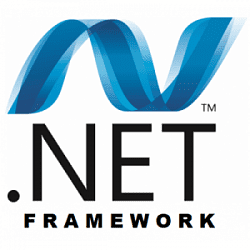June 22, 2023 - KB5028575 Update for .NET Framework 4.8.1 for Windows 11, version 21H2
The June 22, 2023 update for Windows 11, version 21H2 includes improvements in .NET Framework 4.8.1. We recommend that you apply this update as part of your regular maintenance routines. Before you install this update, see the Prerequisites and Restart requirement sections.
Summary
Security Improvements
There are no new security improvements in this release.
Quality and Reliability Improvements
1Common Language Runtime (CLR)
CLR1 This update addresses a change that affects how you use the X509Certificate, X509Certificate2, or X509Certificate2Collection classes. When you use them to import a PKCS#12 blob that contains a private key, the calling application might get an exception. The exception message is, “System.Security.Cryptography.CryptographicException: PKCS12 (PFX) without a supplied password has exceeded maximum allowed iterations. See KB5025823 Change in how .NET applications import X.509 certificates - Microsoft Support for more information.” To learn more, seeKB5028608.
Known issues in this update
Microsoft is not currently aware of any issues in this update.
How to get this update
Install this update
Release Channel Available Next Step Windows Update and Microsoft Update No See the other options below. Windows Update for Business No See the other options below. Microsoft Update Catalog Yes To get the standalone package for this update, go to the Microsoft Update Catalog website. Windows Server Update Services (WSUS) No You can import this update into WSUS manually. See the Microsoft Update Catalog for instructions.
File information
For a list of the files that are provided in this update, download the file information for cumulative update.
Prerequisites
To apply this update, you must have .NET Framework 4.8.1 installed.
Restart requirement
You must restart the computer after you apply this update if any affected files are being used. We recommend that you exit all .NET Framework-based applications before you apply this update.
Source:
See also:
Last edited:










